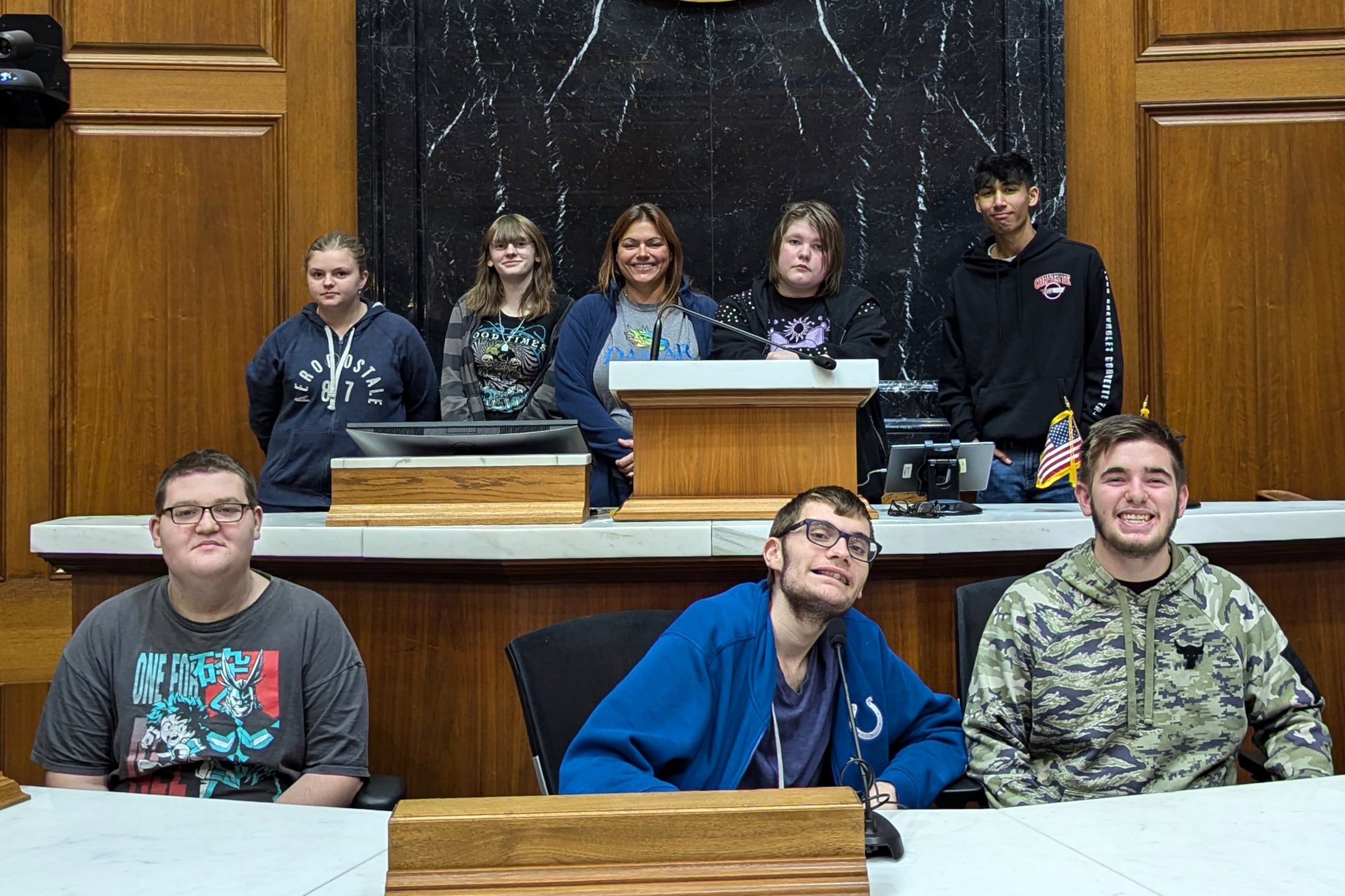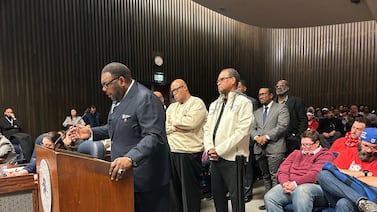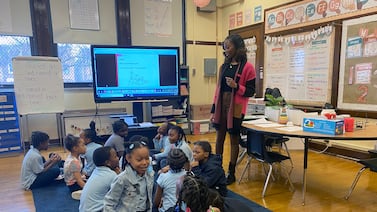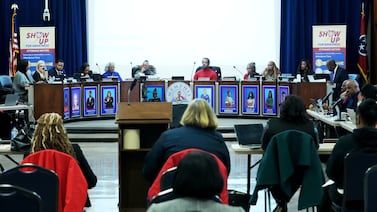Sign up for Chalkbeat Indiana’s free daily newsletter to keep up with Indianapolis Public Schools, Marion County’s township districts, and statewide education news.
Laura Hinz is all over the place.
On a random Wednesday, she may be at McDonald’s picking up lunch for one of her students as a reward. On Tuesdays, she takes her students on field trips for what’s known as “LONN Day” — experiences that expose students to life skills, occupational skills, nature, and nurturing environments. And three days a week, she drives one of her students to the Indianapolis International Airport, where he has an internship that she set up for him.
“I’m telling you: I love my job,” she said of her position as the high school diploma track teacher at Damar Charter Academy, a K-12 school on the southwest side of Indianapolis serving students with behavioral and developmental challenges. “There’s no other teaching positions that ever compare to the one that I have created, because I’ve created this role for myself. And if we didn’t have LONN days, then the class would just be like every other class.”
At Damar, Hinz oversees students’ online learning, done largely from inside the school building, to ensure they receive their high school diploma, which they have until age 22 to complete.
But Hinz also sees the value in learning “adulting,” or how to function as an adult in the real world. That’s why she started LONN days, which feature field trips to places such as the post office, the Statehouse, and the grocery store. This year, they traveled to local voting centers.
Her journey to this position began several years ago with one student at a different behavioral school, where she was tapped to serve as the temporary teacher in the middle of the school year.
The student had a behavioral issue every day, she said. That’s when she pitched a system: For every good day he had, they would write down the letter of a restaurant the student suggested. When they spelled out the restaurant, Hinz would buy the student lunch from that location.
“It was from then on that I never had any more behaviors out of him,” she said. “After that year was over, he went back to his regular school, and he was fine ever since. And that really opened my eyes — I wanted to be in a behavioral school so bad.”
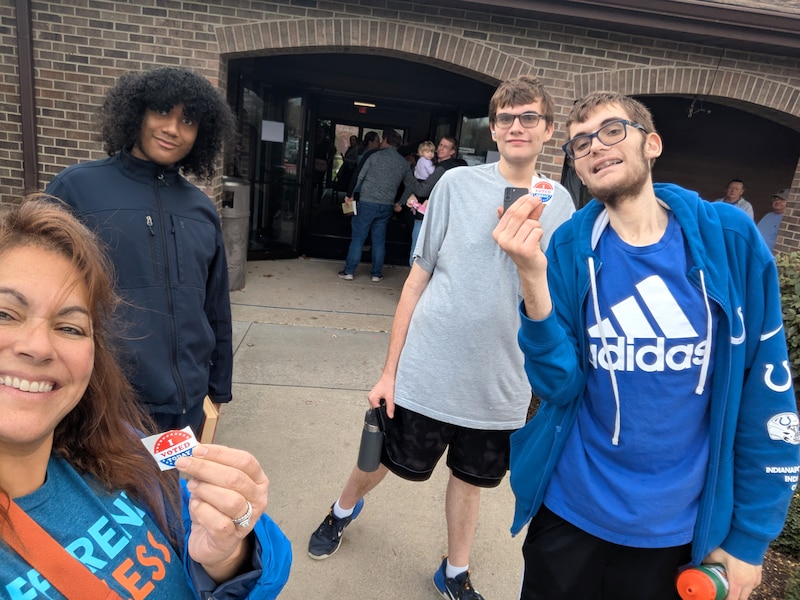
At Damar, she still uses the lunch-buying tactic to entice her students to earn credits toward their diploma. Hinz spoke with Chalkbeat about her lesson plans, advice for those working with students with behavioral and developmental challenges, and more.
This interview has been edited for length and clarity.
What is one of your more popular outings with students?
One of the favorite activities is comparing and contrasting grocery stores. We’ll make a whole recipe and we’ll go to Meijer or Kroger. We will price and write down everything that they need for their particular [recipe], and then we’ll do the same thing and we’ll go to Aldi. And they’ll see what it’s like between the different places. That’s always an eye-opener for them.
Students compare not just the cost of items but also analyze which items are available. They know that if they want to make certain stuff, Aldi doesn’t have all those certain things.
Tell us about a favorite lesson to teach. Where did the idea come from?
My favorite lessons are typically the impromptu ones where students are asking those questions to become more knowledgeable about what excites them. We have daily discussions after we watch CNN 10 in the afternoons. We learn so much about random subjects due to curiosity.
If I were to pick one particular lesson that is taught annually, it is the lesson of words with toothpaste. Students get their own new toothpaste tube, gloves, and a plate and race to see who can empty the tube the fastest. Then they are instructed to put it all back into the tube (nearly impossible). That is when we talk about words, how they can be very effective, hurtful, and amazing.
Tell us about a memorable time — good or bad — when contact with a student changed your perspective or approach.
I remember many years ago when a student was asking a very bland question that I just assumed they would know the answer to. I was wrong, and from that point forward, I remind myself and others that we, as educators, can not assume that a child knows anything. We have to set that positive example and teach them about the smallest to the most complex ideas or thoughts to the best of our ability.
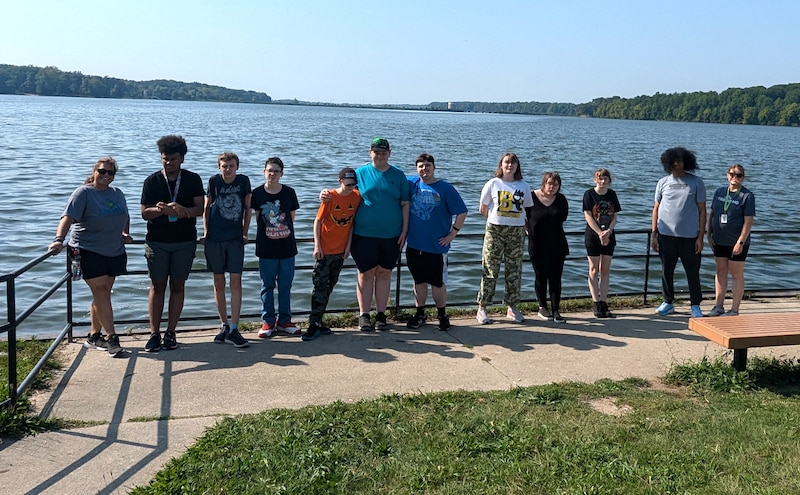
What advice would you give to teachers working in special education who feel burnt out or discouraged?
Every day is a new day. A behavior is only worth its immediate time. Learn from it, and ask ‘What is it that you need?’
What was the biggest misconception that you initially brought to teaching?
“You have to be an expert to teach the subject.” This is completely false. I am not an expert at anything, but I am really good at behavior management. If you can manage behaviors in the classroom, you can teach anything!
Amelia Pak-Harvey covers Indianapolis and Lawrence Township schools for Chalkbeat Indiana. Contact Amelia at apak-harvey@chalkbeat.org.

